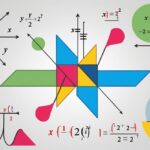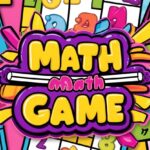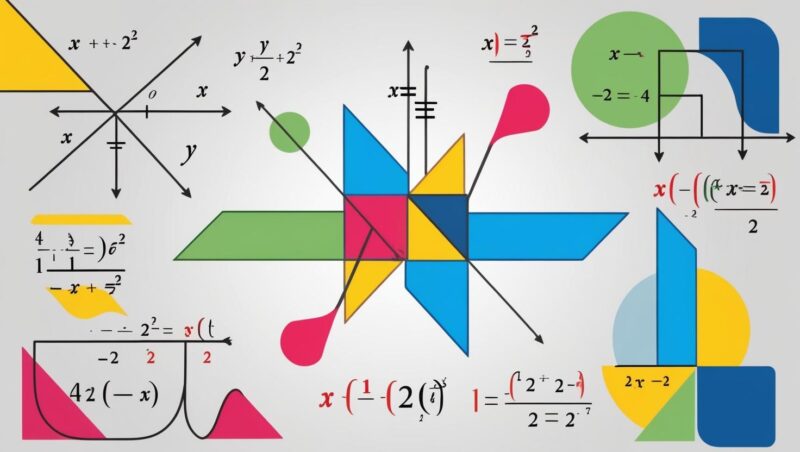
Share Post:
Cool math games are popular among various age groups because they combine entertainment with educational value.
These games are designed to sharpen mathematical skills in a fun and engaging way, making them ideal for both children and adults.
Table of Contents
Toggle1. 2048
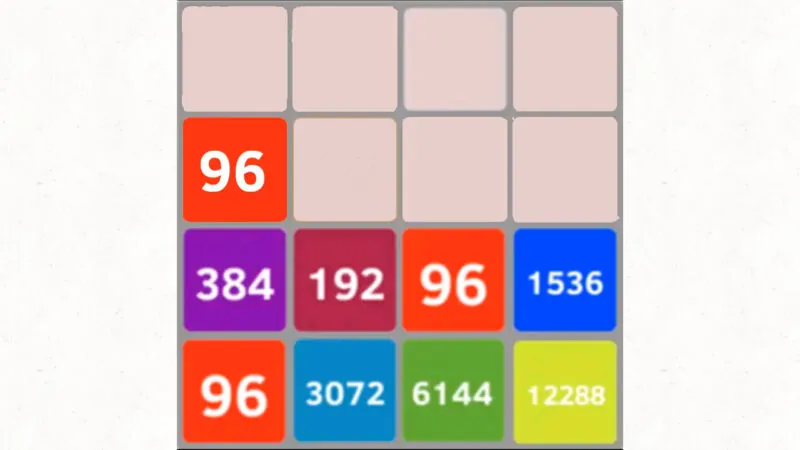
2048 is a highly addictive puzzle game where players combine numbered tiles to reach the target of 2048. The game starts with two tiles, and players must slide them around the grid, merging tiles of the same value.
Every successful merge doubles the tile value until the player achieves 2048 or the grid becomes too full to make any more moves.
Skills Involved
- Addition: Merging tiles requires adding numbers together.
- Pattern Recognition: Players must recognize patterns in the layout to plan the next move effectively.
- Strategic Planning: Thinking several moves ahead is crucial to avoid running out of space on the grid.
Additional Benefits
- Memory Improvement: Keeping track of potential merges helps boost memory skills as players mentally map out their next steps.
- Patience: The game teaches patience, as rushing to merge tiles without a clear plan often leads to filling up the grid quickly and losing the game.
- Focus and Concentration: As the game progresses and tiles pile up, players need to concentrate more to avoid critical mistakes, enhancing focus.
Age Range
2048 is suitable for all ages. Young children can benefit from practicing basic addition, while adults find it an engaging brain teaser that challenges their strategic thinking.
Its simple rules and increasing difficulty make it appealing to both casual gamers and those looking for a more intense puzzle-solving experience.
Even though reaching 2048 is difficult, players often find themselves coming back for more, captivated by the possibility of getting further each time.
2. Sudoku – Classic Puzzle
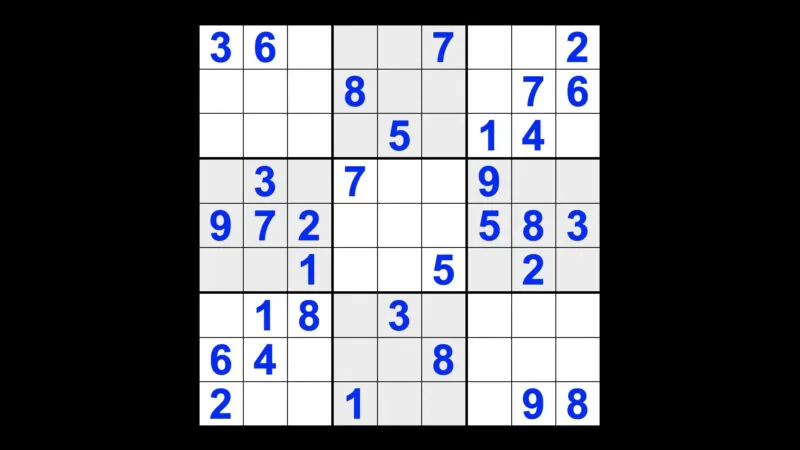
Sudoku is a timeless number placement puzzle. The objective is to fill a 9×9 grid with numbers so that each column, row, and 3×3 subgrid contains all digits from 1 to 9 without repetition.
While the concept is simple, Sudoku can range from easy to incredibly challenging, making it appealing to a wide audience.
Skills Involved
- Critical Thinking: Players must think critically about where to place each number.
- Logic: The game demands logical reasoning to deduce the correct placement of numbers.
- Number Recognition: Understanding patterns in numbers and how they interact is essential.
Additional Benefits
- Patience: Solving a Sudoku puzzle often requires patience, as rushing through leads to mistakes.
- Concentration: The focus required to solve a Sudoku puzzle is immense, especially as difficulty increases.
- Problem-Solving Skills: Players develop stronger problem-solving skills, learning to break down complex problems into smaller, manageable parts.
Advanced Techniques
For more experienced players, solving advanced Sudoku puzzles involves techniques beyond basic logic
- Naked Pairs/Triples: Identifying two or three cells within a row, column, or box that must contain the same numbers can help eliminate other possibilities.
- Candidate Elimination: Players often make “notes” in empty cells, writing down all potential candidates for a number.
- X-Wing and Swordfish Techniques: These strategies are used in harder Sudoku puzzles to identify patterns across the grid and narrow down potential number placements when more straightforward methods are insufficient.
Age Range
Sudoku is a versatile game suitable for a wide range of age groups. Young children can start with simpler puzzles to learn the basics of logic and number placement, while adults can enjoy the challenge of solving more difficult puzzles to keep their minds sharp.
Sudoku offers mental stimulation for all ages, making it a perfect brain workout for anyone seeking to enhance their critical thinking and logical reasoning abilities.
3. Run 3
Run 3 is a fast-paced, space-themed platform game where players guide a small alien through tunnels in space.
The objective is to keep the alien running without falling off the edge or into gaps in the tunnel.
As the levels progress, the tunnels become more complex, requiring quick reflexes and spatial awareness.
Skills Involved
- Reflexes: The game demands quick responses to avoid falling off the platforms.
- Spatial Awareness: Players need to recognize and navigate complex tunnel designs.
- Quick Thinking: Decisions need to be made rapidly as the alien moves through the tunnels.
Additional Benefits
- Problem Solving: As the tunnels grow more intricate, players need to come up with creative solutions to bypass difficult sections, enhancing problem-solving abilities.
- Hand-Eye Coordination: Run 3 requires players to maintain control over the alien’s movement while simultaneously keeping track of the environment, improving hand-eye coordination.
- Persistence: Since the levels get progressively harder, the game encourages perseverance. Players must learn from mistakes, retrying levels until they master them.
Age Range
Run 3 is accessible to all age groups due to its simple yet challenging mechanics. Younger players will enjoy the straightforward goal of keeping the alien running, while older players will appreciate the increasingly difficult levels that require sharper reflexes and critical thinking.
The game’s intuitive design, combined with its escalating difficulty, makes it an appealing option for both casual and serious gamers.
Furthermore, with no complex instructions or heavy themes, it’s family-friendly and can provide hours of entertainment for kids and adults alike. The vibrant, futuristic visuals also enhance the gaming experience, making it visually appealing and fun for players of all ages.
4. Multiplication and Division Bingo
Multiplication and Division Bingo is a classroom favorite, where students solve math equations to fill their Bingo cards.
The teacher calls out multiplication or division problems, and students must solve them to mark off the correct answers on their cards.
The first player to get five in a row wins.
Skills Involved
- Basic Arithmetic: Students engagingly practice multiplication and division.
- Focus: Players need to concentrate on solving each problem quickly.
- Quick Calculation: Solving problems on the spot hones mental math skills.
Additional Benefits
- Friendly Competition: The competitive element adds excitement and motivates students to engage with the material. It encourages them to perform well without making the environment too stressful.
- Adaptability: The game is highly adaptable. For younger students, teachers can focus on simpler multiplication tables (like 2s, 5s, and 10s), while older students can tackle more advanced problems involving larger numbers or multi-digit division.
- Team Building: If played in teams, the game promotes collaboration and communication, as students can work together to solve equations and fill in their Bingo cards.
Age Range
Multiplication and Division Bingo are ideal for elementary school students, who are often just beginning to master these essential arithmetic skills. However, the game can be adapted for older children or even adults by increasing the difficulty level.
For older students, teachers can incorporate more complex equations, such as multi-step problems or word problems that require multiplication and division. Even for adults, the game can be an entertaining way to keep math skills sharp in a fun, low-pressure setting.
5. Minesweeper
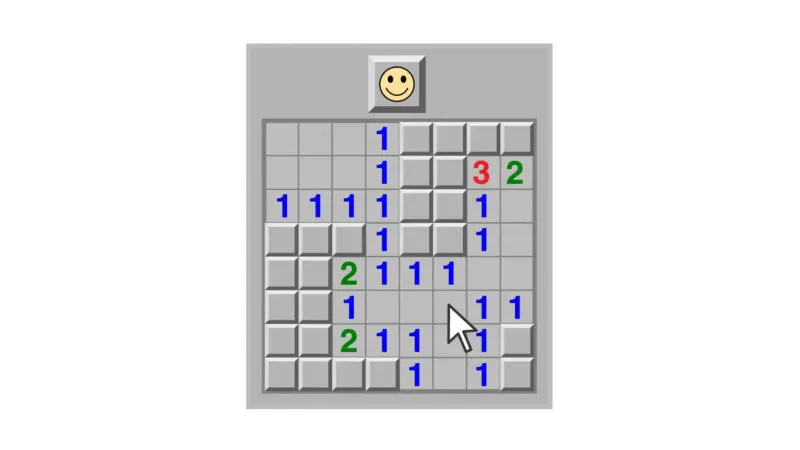
Minesweeper is a logic-based puzzle game where players uncover tiles on a grid, avoiding hidden mines. The numbers on the revealed tiles indicate how many mines are adjacent to them.
The goal is to clear the grid without detonating any mines, requiring careful deduction and risk assessment.
Skills Involved
- Logic: Players must deduce the location of mines based on numerical clues.
- Deduction: The game requires a careful assessment of risk before uncovering tiles.
- Risk Management: Knowing when to take calculated risks is crucial for success.
Additional Benefits
- Pattern Recognition: As players become more familiar with the game, they develop an ability to recognize common patterns, making it easier to identify mine locations and predict which tiles are safe.
- Attention to Detail: Minesweeper encourages players to pay attention to small details, such as how a single number relates to the tiles around it.
- Problem-Solving: The game demands continuous problem-solving as players attempt to clear the board without triggering any mines.
- Patience and Focus: Minesweeper requires players to exercise patience, especially on more difficult levels.
Risk vs. Reward
As Minesweeper progresses, players often face scenarios where a safe move isn’t obvious. In these moments, the game tests their risk tolerance, as taking calculated risks can lead to uncovering crucial information or prematurely ending the game. Balancing caution and risk is key to mastering Minesweeper.
Age Range
While Minesweeper is suitable for players of all ages, it is especially popular with teens and adults due to the high level of logical thinking and risk management involved.
Younger players may find the game’s challenges difficult without strong deduction skills, but it serves as an excellent mental exercise for older players who enjoy strategy and problem-solving.
The simplicity of its mechanics, combined with the depth of its strategy, has kept Minesweeper relevant and beloved for decades.
6. Jacksmith
Jacksmith is a blacksmith simulation game where players craft weapons and gear for a group of adventurers.
The crafting process is based on mini-games involving math, such as calculating the correct amount of materials or measuring the right angles for crafting.
Players must successfully equip the adventurers for battles while managing resources effectively.
Skills Involved
- Resource Management: Players need to allocate resources efficiently.
- Crafting and Problem Solving: Math-based mini-games challenge players to solve problems while crafting weapons.
- Strategic Planning: Players must think ahead to ensure their adventurers are well-equipped for future battles.
Additional Benefits
- Attention to Detail: Crafting high-quality weapons requires precision and focus. Players must pay close attention to the details of each weapon to ensure it meets the adventurer’s needs.
- Time Management: Players must learn to manage their time efficiently, crafting multiple items while keeping an eye on the needs of future clients.
- Creative Problem Solving: The variety of weapons and enemies in Jacksmith encourages players to think creatively when solving crafting challenges.
Age Range
Jacksmith is best suited for teens and adults due to its complexity and the strategic thought required to manage resources and craft effective weapons.
The game appeals to those who enjoy strategy and simulation games, as well as players who like games that integrate math-based problem-solving.
The combination of hands-on crafting and strategic planning makes it both educational and entertaining for older players.
7. Math Jeopardy
Math Jeopardy is a classroom-based game modeled after the TV show Jeopardy. Teachers create a board with different mathematical categories, such as arithmetic, algebra, or geometry. Players choose questions and earn points by solving them correctly.
It’s a team-based game that encourages collaboration and healthy competition.
Skills Involved
- Arithmetic, Algebra, and Geometry: Depending on the questions, a wide range of math skills are tested.
- Teamwork: Players often work in teams to solve problems.
- Critical Thinking: Solving complex problems requires quick reasoning.
Additional Benefits
- Engagement and Motivation: The competitive nature of Math Jeopardy keeps students engaged and motivated.
- Customizable Difficulty: Math Jeopardy can be easily adapted for different age groups or skill levels.
- Review and Reinforcement: The game is an excellent tool for reviewing previously taught material.
Age Range
Math Jeopardy is adaptable for all ages, from elementary school students learning basic math to high school and college students tackling more advanced topics.
The game can be scaled to different difficulty levels, making it an ideal learning tool for a wide range of learners.
Teachers can also adjust the categories and question types to suit specific learning objectives, ensuring that all students, regardless of their proficiency, can participate and benefit from the game.
8. Guess My Number
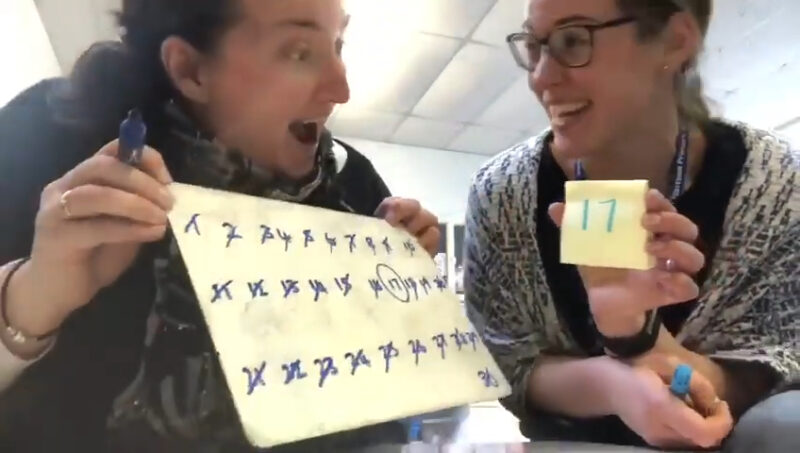
Guess My Number is a number-based deduction game where players must guess a secret number within a certain range. The game gives hints, such as “higher” or “lower,” to guide the players toward the correct answer. The challenge is to figure out the number using as few guesses as possible.
Skills Involved
- Number Sense: Players need to understand the relationship between numbers.
- Deduction: Logical reasoning helps players narrow down the range of possible numbers.
- Strategic Thinking: The game requires players to make smart guesses to find the correct number quickly.
Additional Benefits
- Problem-Solving Skills: Guess My Number encourages players to think critically and refine their approach with each new piece of information, boosting problem-solving abilities.
- Patience and Focus: Players must remain patient and focused as they work through their guesses, especially when the range of numbers is large and requires multiple deductions.
- Math Confidence: For younger players, this game can build confidence in working with numbers, as they become more comfortable with understanding numerical relationships and ranges.
Age Range
Guess My Number is particularly well-suited for younger children, making it a popular classroom or homeschooling game to develop number sense and logical thinking.
It’s especially beneficial for elementary school students, but the game can be adapted for older players by increasing the range of numbers or introducing additional complexity.
The simplicity of its design makes it a versatile tool for math education, as it combines fun with learning.
9. Shape Scavenger Hunt
Shape Scavenger Hunt is an interactive game where children find and identify various shapes around their environment. Whether at home or school, children are tasked with spotting objects that match specific geometric shapes.
Skills Involved
- Geometry: Identifying shapes helps reinforce geometric concepts.
- Shape Recognition: Children learn to recognize common shapes in everyday objects.
- Observational Skills: Players improve their ability to observe and categorize shapes in the world around them.
Additional Benefits
- Physical Activity: Shape Scavenger Hunt encourages children to move around, whether it’s searching around the classroom or outdoors.
- Teamwork and Cooperation: When played in groups, children can work together to find shapes, which fosters teamwork and cooperative learning.
- Creativity: The game can be extended to art projects where children create collages or drawings using the shapes they found, further enhancing their creativity and visual-spatial skills.
Age Range
This game is best suited for young children, particularly those in preschool or early elementary school who are just beginning to learn about basic shapes.
However, it can easily be adapted for older children by increasing the complexity of the shapes they need to find.
The game is an excellent introduction to geometry, providing a solid foundation for future math concepts while also being a fun, interactive activity.
10. Clicker Heroes
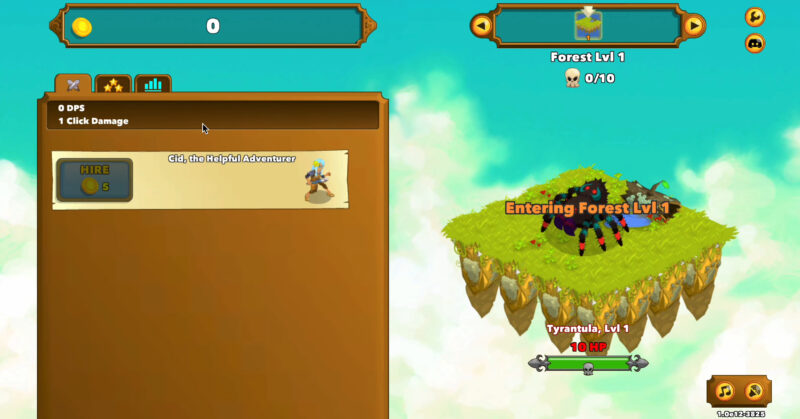
Clicker Heroes is a click-based role-playing game (RPG) where players defeat enemies by clicking and using math-based strategies to upgrade their abilities.
As players progress, they can unlock heroes, upgrade abilities, and face stronger enemies.
Skills Involved
- Basic Math Operations: Players frequently engage in addition and multiplication to make upgrades.
- Strategic Planning: Deciding when and how to allocate resources is a key aspect of the game.
- Incremental Problem Solving: The game involves solving small mathematical problems to progress.
Additional Benefits
- Resource Management: Players must balance their gold between upgrading heroes and unlocking new abilities.
- Patience and Reward: Clicker Heroes encourages patience, as many upgrades take time and effort to accumulate the required resources.
- Long-term Thinking: With the introduction of prestige mechanics, players are rewarded for thinking beyond immediate gains, pushing them to make choices that might not pay off right away but are beneficial in the long run.
Age Range
Clicker Heroes is accessible to all ages. Younger players enjoy the straightforward mechanics of clicking to defeat enemies, while older players appreciate the depth of strategy and math-based decision-making involved.
It serves as a great introduction to RPGs for kids, teaching them resource management and strategic thinking in a light, entertaining way.
For older players, the game offers ongoing challenges that require thoughtful planning and mathematical understanding, keeping the experience engaging for a long time.
11. KenKen
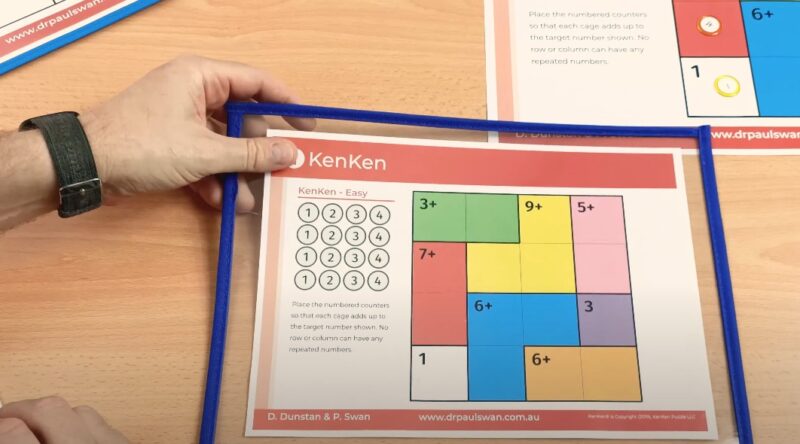
KenKen is a grid-based puzzle game similar to Sudoku but with an arithmetic twist. Each “cage” (group of cells outlined in bold) has a target number and an associated math operation.
Players must fill the grid with numbers so that each row and column contains no duplicates while also satisfying the cage’s arithmetic requirement.
Skills Involved
- Arithmetic Operations: Addition, subtraction, multiplication, and division are integral to solving each cage.
- Logical Reasoning: Similar to Sudoku, KenKen demands careful placement of numbers.
- Spatial Organization: Players must visualize how different cages interact across rows and columns.
Additional Benefits
- Flexible Difficulty: Puzzle sizes can range from 3×3 to more challenging 9×9 grids, accommodating various skill levels.
- Enhanced Focus: Concentration is key, as missing even a single arithmetic clue can derail the entire solution.
- Creative Problem-Solving: Players experiment with multiple arithmetic combinations, fostering creative thinking.
Age Range
KenKen puzzles can be tailored for young learners just mastering basic operations or for adults looking for a complex mental workout.
The adaptability of cage sizes and arithmetic operations makes it suitable for a broad age group, from elementary-age students to seasoned puzzle enthusiasts.
12. Prodigy
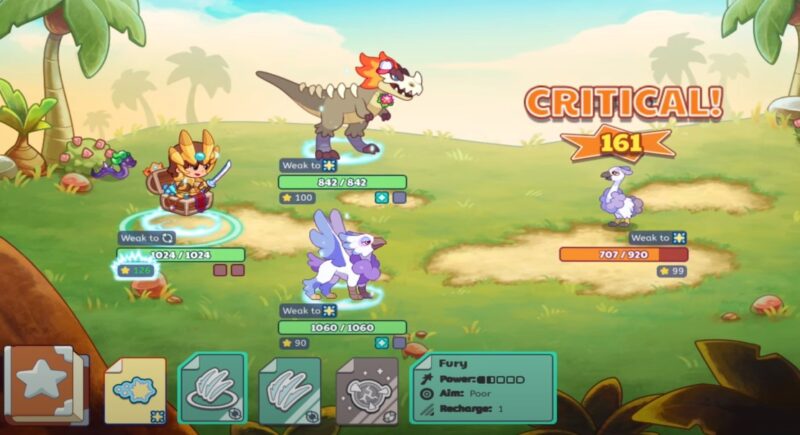
Prodigy is an online role-playing game (RPG) designed specifically for elementary and middle school students.
Players embark on quests in a fantasy world, battling creatures by answering math questions. The difficulty adjusts to the player’s skill level, ensuring a personalized learning experience.
Skills Involved
- Basic Arithmetic to Advanced Topics: Covers a wide range of math standards, from simple addition to fractions, geometry, and algebraic concepts.
- Strategic Thinking: Players must manage items, spells, and resources in their magical battles.
- Adaptive Learning: The game continuously evaluates each player’s performance and adjusts the difficulty accordingly.
Additional Benefits
- Engaging Storyline: The fantasy setting and collectible pets keep learners motivated.
- Reward System: Players receive in-game rewards for answering questions correctly, reinforcing positive learning habits.
- Progress Tracking: Teachers and parents can monitor students’ progress in real-time.
Age Range
Prodigy is primarily aimed at elementary to early middle school students (roughly ages 6–14).
However, its adaptive nature can also support slightly younger or older learners who want to solidify their foundational math skills in an immersive, story-driven format.
13. Kakuro
@puzzlesandfun #kakuro #game #puzzle ♬ Chill and gentle lo-fi/10 minutes(1455687) – nightbird_bgm
Kakuro is often described as a mathematical crossword puzzle. Players must fill a grid with numbers 1 through 9 such that the sum of each horizontal or vertical “run” matches a clue.
No digit may repeat within a run, adding an extra layer of complexity.
Skills Involved
- Addition and Combinations: Each clue requires specific sums that can be formed in limited ways.
- Logical Deduction: Kakuro puzzles need methodical thinking to eliminate possibilities.
- Pattern Recognition: Players quickly learn common combinations for numbers like 16 or 17 in a run of four cells.
Additional Benefits
- Concentration: Like Sudoku, Kakuro encourages deep focus, as mistakes are easy to make if players rush.
- Memory and Recall: Frequent players memorize common number combinations, enhancing mental math skills.
- Incremental Difficulty: From beginner-friendly small grids to large, complex grids for experts, there’s a Kakuro puzzle for everyone.
Age Range
Kakuro is generally accessible to older children (upper elementary and beyond) and adults.
Younger players may find it challenging, but it’s a rewarding puzzle for anyone seeking to improve arithmetic skills through fun, brain-teasing gameplay.
14. Monster Math
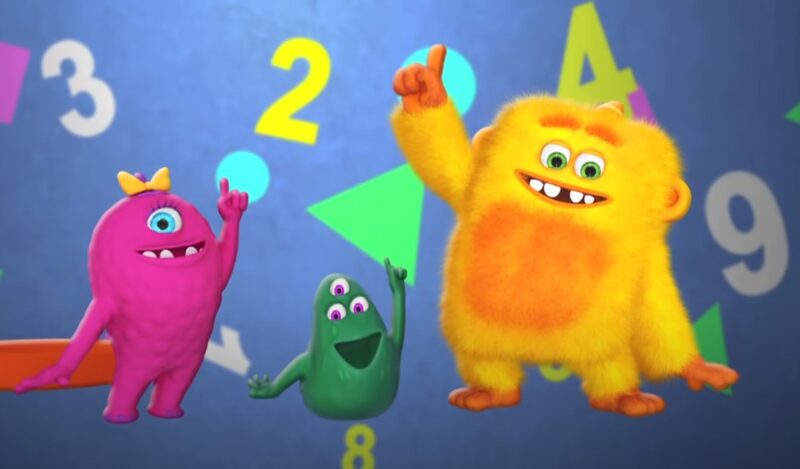
Monster Math is an educational app-based game designed to help younger students practice essential arithmetic skills.
Kids face off against cartoonish monster opponents by answering math questions aligned with their grade level, making it a colorful and engaging way to build confidence in math.
Skills Involved
- Foundational Arithmetic: Focuses on addition, subtraction, multiplication, and division.
- Reaction Time: Some levels require quick answers, encouraging faster mental math.
- Adaptive Learning: The difficulty adjusts based on a child’s performance, ensuring they’re always challenged at the right level.
Additional Benefits
- Progress Reports: Parents and teachers can track a child’s growth, identifying areas that need extra attention.
- Rewards and Incentives: Fun visuals and achievements motivate players to keep practicing.
- Game-Like Engagement: Bright colors, lively animations, and friendly monster characters create an enjoyable atmosphere that keeps kids coming back.
Age Range
Monster Math is best suited for elementary school students (ages 5–10).
Its adaptive nature and entertaining format can also assist slightly older learners who need extra practice, offering a stress-free environment to reinforce basic math skills.
The Bottom Line
Cool math games offer a perfect balance of fun and learning, making them ideal for players of all ages. If you’re looking for a way to test your math skills, try this engaging quiz designed for 10-year-olds and see how well you score!
From classic logic puzzles like Sudoku to interactive games like Clicker Heroes, there’s something for everyone.
Give them a try and see how much fun math can be!
Related Posts:
- 12 Best Online Quiz Games for Classrooms in 2025
- 9 Fun Math Games Inspired by Real Sports That Teach…
- Top 15 Math Board Games That Make Learning Fun
- 8 Best Resources for Math Teachers 2025 - Websites,…
- The Best Math Challenges for Kids in 2025 & How to Get Ready
- Best 12 AI Tools for Math Problem Solving in 2025





